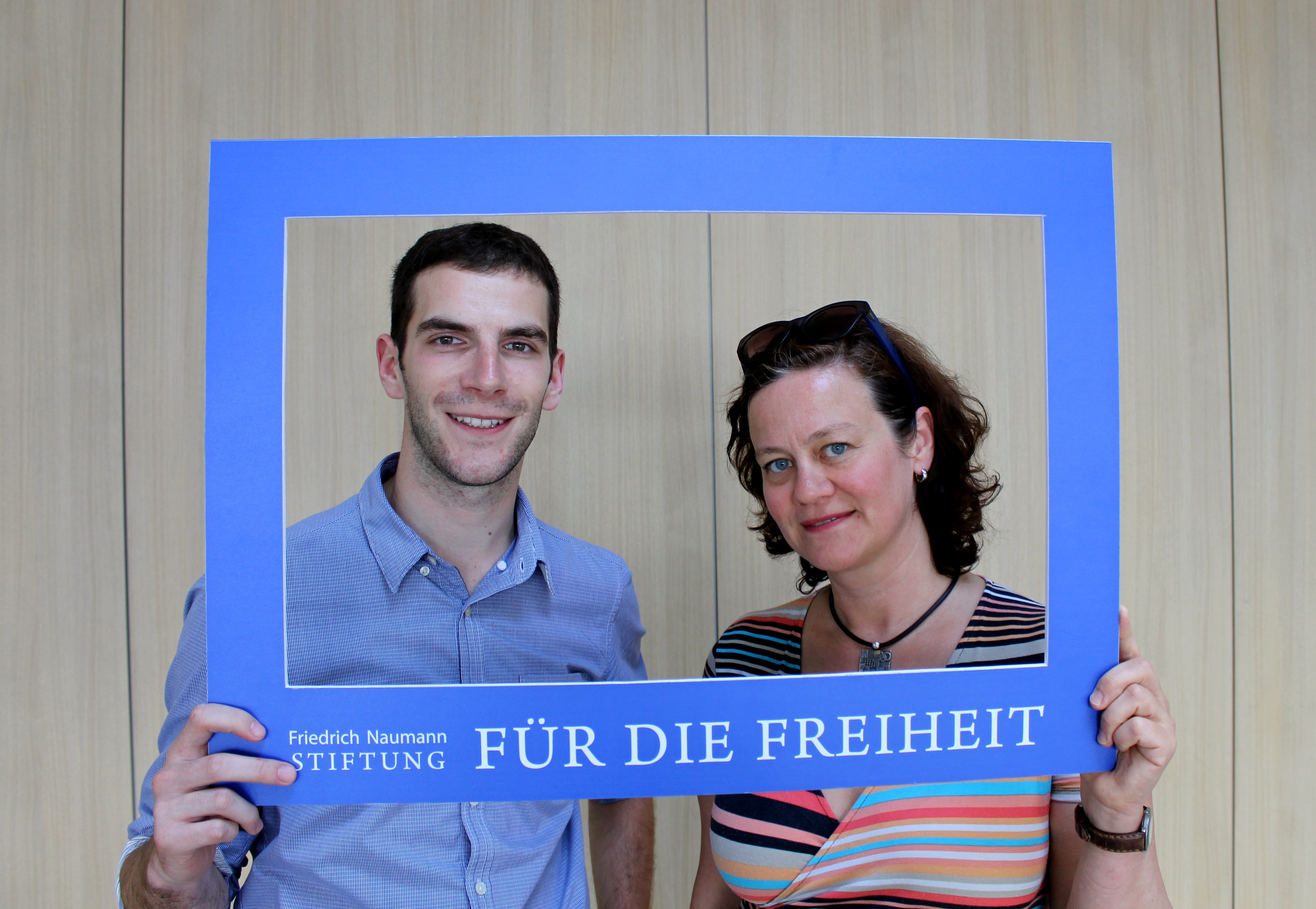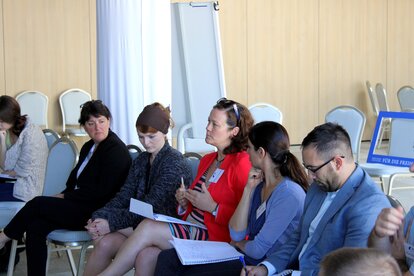Voices of Tolerance: Dessislava Gavrilova In Focus

Dessislava Gavrilova and Ivan Despotovic, Fellows 2015
Dessislava Gavrilova is one of the “Promoting Tolerance” 2015 fellows from Bulgaria. She is an independent cultural consultant and cultural entrepreneur. She engages in consultancy projects in the fields of culture, cultural policy and socio-cultural development for different non-governmental and international organizations, as well as supra-national bodies, such as the European Commission, The Council of Europe, Open Society Foundation. She is initiating and leading new civic and cultural structures, like the European Network of Centers for Culture and Debate “Time To Talk”. Dessislava is Co-Founder and Director of The Red House – Center for Culture and Debate in Sofia, Bulgaria. She holds a MA degree in Public Policy from Central European University, Hungary; Research Study in Cultural Policy from University of Oxford; and a BA and MA in Theatre Studies from Sofia Theatre and Film Academy, Bulgaria.
Watch a video with her here, where she addresses the following questions: “Why is respect for human rights and tolerance towards minorities so important for her and her country?” and “Which is the major characteristic of anti-Semitism in her country?”
Voices of Tolerance: Dessislava Gavrilova, Bulgaria, Fellow 2015
She shares the following motivation to participate in the Program: „My interest is in exploring the current challenges to freedom of speech in the Western world, and the way in which it is being eroded or directly attacked from two opposing ideological directions. The problem of freedom of speech and its relation to ethics and the respect for the other, is another key topic of interest, which recent dramatic events in Europe challenge us to re-think. ..I believe that the comparison between the prevailing approaches to these issues on the both sides of the Atlantic will offer useful insights that civil society actors in Central and Eastern Europe can further translate into their work, in order to add sophistication and clarity to their discourses on the issue, and inform their actions.“
In her essay “ Major Instances of Anti-Semitism in Bulgaria and their Underlying Reasons” Dessislava Gavrilova draws attention to the fact that: „Bulgaria is a country that prides itself for having saved its Jews during the Second World War, and rightly so: the joint efforts of Bulgarian political and religious elites succeeded to prevent sending Bulgaria's 48.000 Jews to concentration camps.”

Dessislava Gavrilova at the Promoting Tolerance Seminar in Belgrade
Dessislava further shares in her essay that: „After the political change of 1989, a new “exit” of Jews from Bulgaria to Israel and Western countries took place. In 1992, after the first “Jewish exodus” wave from Bulgaria, there were 3461 Jews. If the tendency continues, soon there will be hardly any Jews left in the country, and not because they were forced out by wide-spread anti-Semitic sentiments, but mainly because of the worsening living conditions in Bulgaria in the last decades, a reason that drove another 2 million people to leave the country during the same period.”
A main highlight from the essay is also the following: “If there is a tendency to be observed in Bulgarians' anti-Semitic sentiments, it is that anti-Semitism becomes more and more abstract, targeted rhetorically against Jews, of which however Bulgarians know little, as they hardly have a chance to confront them in their everyday life.”
Dessislava concludes that: “Globalization fuels the frustration of the masses with these elites, people feel more and more dis-empowered, and their frustration finds surprising expressions. The list of the usual suspects of conspiracy theories is long, and it includes local oligarchs, media moguls, and of course the political class. The figure of the almighty Jew is just one of them, and way not the most popular one. So, if there is any antisemitism left in Bulgaria today, it is in fact an anti-elite sentiment in disguise.”
Find the whole essay here.
For more information for “Promoting Tolerance” Program: here.
Photos from the seminar in Belgrade can be found here:
-
Dessislava Gavrilova's essay